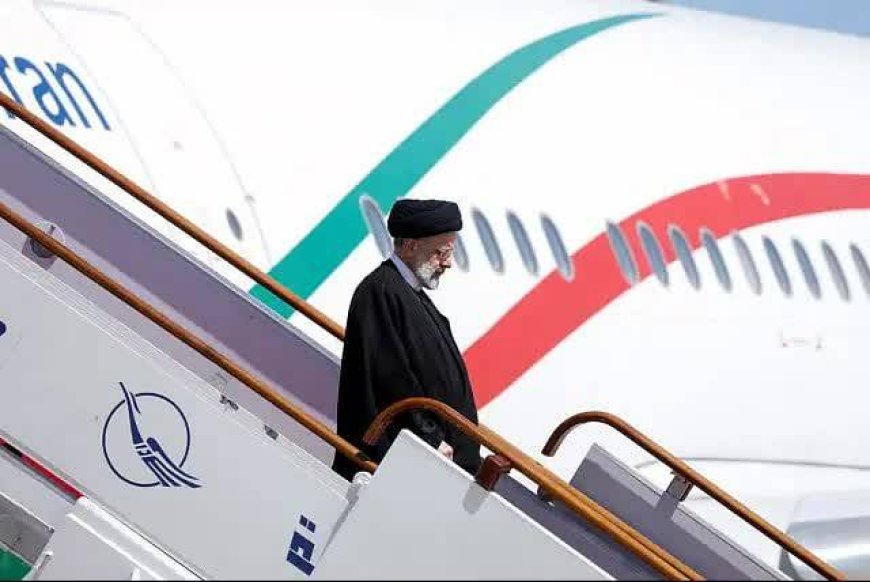Iran in Latin America: From Havana, Caracas, and Managua, Iran's Raisi pokes Washington in the eye
Iran in Latin America: From Havana, Caracas, and Managua, Iran's Raisi pokes Washington in the eye

In this regard, Iran seems to be attempting to broaden its economic and foreign policy horizons with the recent visit of Iran's President, Dr. Ebrahim Raisi, to three key South American nations: Venezuela, Cuba, and Nicaragua. These nations bear great significance in the geopolitical landscape of the Americas and have fostered cordial relations with Iran for decades. Mr. Raisi, in his election campaign, pledged a desire to enhance Tehran's ties with both neighbouring countries and allies beyond the Middle East.
What we are observing here is a convergence of nations that share a fundamental opposition to the United States' unilateralist policies in the international arena. This convergence of views is the impetus behind Iran's expanding alliance with Latin American nations, a salient development reflective of the geopolitical complexities of our time. The recent coverage by Western media regarding Dr. Raisi's tour to South America, which many commentators regard as Washington's historical backyard, has reflected frustration among Western leaders, as Iran's close ties to the Latin American countries are a source of constant anxiety for them. As we delve deeper into the underlying motives driving the Iranian president's diplomatic journey to the Latin American region, we must analyse the intricacies of Iran's strategic focus on these nations.
During the administration of Hugo Chávez, Venezuela forged a strong bond with Tehran that endured beyond his demise. In light of the West's efforts to overthrow Nicolás Maduro, the democratically elected president of Venezuela, the Tehran-Caracas alliance has taken on a new dimension, with Iran's aid in restoring stability to the 28-million-strong Latin American nation. Iran's unwavering support has undoubtedly left an enduring impression on the consciousness of the Venezuelan leaders.
For Iran, the close ties between Iran and Venezuela provide a strategic lifeline to circumvent the unlawful sanctions imposed by Western powers while simultaneously meeting its domestic demands for essential goods. Iran imports annually a substantial amount of raw materials and agricultural products, such as wheat and barley. In the previous year, Caracas offered the idea of extraterritorial farming to Tehran as a means to alleviate Iran's persistent predicaments with high import costs. Given the delicate nature of the matter for Iran, it was subjected to examination in Tehran.
On the other hand, Venezuela expresses a strong interest in Tehran's military expertise and other technologies, especially in the field of unmanned aerial vehicles (UAVs), which gained global recognition following the conflict between Ukraine and Russia. The geographical proximity of Venezuela to the United States renders any potential military cooperation between Caracas and Tehran a matter of utmost sensitivity for the US government.
Cuba is a country that shares a similar political discourse with Iran, and it was among the first nations to establish friendly relations with Iran in the aftermath of the Islamic Revolution of 1979. Also, the frequent visits of Cuban leaders to Tehran piqued the interest of many, especially western analysts. It is noteworthy that throughout the eight-year war that Ba'athist Iraq imposed upon Iran in the 1980s, Havana repeatedly demonstrated its good intentions towards Iran. The close cooperation between the two countries is a strong message to Washington, considering the proximity of Cuba to the east coast of the United States. The alleged establishment of a Chinese spy base in Cuba has been a hot topic of controversy in the Western media in recent weeks. The recent visit of the Iranian president has sparked a surge of interest in this matter, highlighting the expanding sway of the rising Eastern bloc, Iran, China, and Russia, in the Latin American region. Both Iran and Cuba are interested in various areas, including military, medical, and energy fields.
Iran's foreign policy and economic diplomacy have prioritised expanding relations with Latin America, particularly with Nicaragua. This strategy aligns with the current Iranian administration's acknowledgment of the bright prospects of cooperation with Latin America.
Tehran aims to expand the network of its international allies as a means of alleviating the repercussions of Western sanctions, particularly those imposed by the United States.
One potential approach to achieving that goal is by enhancing relationships with Latin American countries. This would not only help Iran counter the negative effects of Western sanctions but also broaden Iran's spectrum of countermeasures.
The burgeoning energy and military cooperation between Iran and Nicaragua has garnered the interest of both nations, especially given the arrival of Iranian military and energy experts during Raisi's visit to Managua. Since Nicaragua, like Iran, has been the target of US sanctions, the necessity of a robust alliance between the two nations to combat the implications of US economic terrorism has been highlighted.
Finally, in today's world, it is widely recognised that cultivating strong political and economic relationships is a fundamental necessity for any country. The Islamic Republic of Iran, understanding this requirement and considering the policy of prioritising the strengthening of relations with its regional and non-regional allies, is committed to broadening previous agreements and enhancing cooperation with its South American partners, as this approach serves a dual purpose: firstly, it can neutralise the effect of Western sanctions, and secondly, it can thwart the West's strategy of isolating Iran.













































